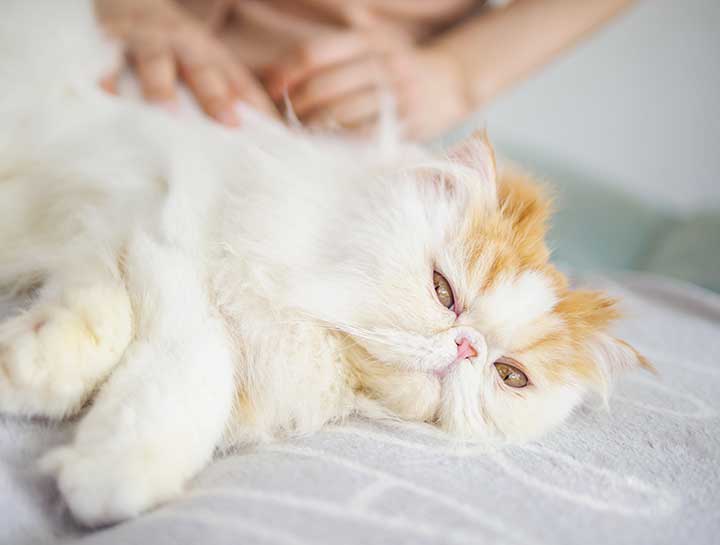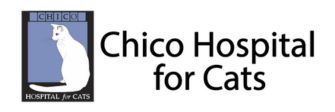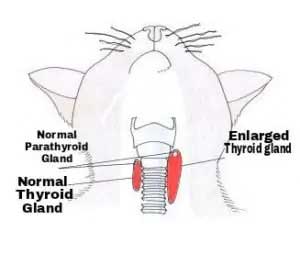Hyperthyroidism Information
Learn more about the disease.
Signs of Hyperthyroidism
Hyperthyroid cats tend to lose weight despite a ravenous appetite. They may drink excessive amounts of water, have diarrhea, vomit intermittently, and become hyperactive or irritable. The heart rate is elevated and sometimes irregular. Your veterinarian may be able to hear a heart murmur and feel an abnormal nodule in the thyroid region.
Diagnosing Hyperthyroidism
Your veterinarian can do a blood test to measure the thyroid hormone level. Confirming hyperthyroidism is very important because other problems such as diabetes, heart disease, and inflammatory bowel disease can mimic the signs of hyperthyroidism. Older cats may have multiple health problems, so a complete physical examination, blood work, and urine screen are always indicated prior to treatment.
What is the treatment procedure?
A recent physical examination, blood work, urine testing, and chest x-rays are required to rule out concurrent diseases. If a heart problem is suspected, an echocardiogram is recommended. Any unrelated health issues should be stabilized prior to admission.
Servicing Northern California and Southern Oregon, Chico Hospital for Cats, Inc. offers Hyperthyroidism Treatments (Radioiodine Therapy / I-131) using the new medical management guidelines from the American Association of Feline Practitioners (AAFP). These guidelines clearly state that the most effective cure for hyperthyroidism is I-131. In addition, effective control of thyroid hormone reduces the rate of decline of kidney function, a common cause of illness in older cats.
After the radioiodine injection, your cat is boarded in a private medical ward until the radioactivity level fades (Minimum 7 days). All cats have their own oversized double-enclosure with plenty of space and a webcam attached for a connection between you and your pet. They are given fresh food and water twice daily. You are welcome to provide favorite food as well as any nutritional supplements. Because bedding and toys could become contaminated during hospitalization, they cannot be returned to you if you provide them. You will receive updates frequently via calls and emails during your cat's treatment.
(Please note that Chico Hospital for Cats does not have over-night staffing available on-site at this moment)
Treatment Comparison
Will my cat be radioactive?
Yes, but only temporarily because the iodine is eliminated in the urine and feces. Once your cat is released, there are some limitations on your interaction with your cat and special handling procedures for his/her litter. Detailed instructions will be provided
Are there any complications?
Radioiodine therapy does not have any of the risks associated with surgical or medical treatment. In about five percent of cats, the hormone level may stay high and require re-treatment, which is done at a minimal cost. Rarely hormone levels do become too low after radioiodine treatment. If this should occur, your cat would require supplementation with oral thyroid hormone.
Can I visit my cat during hospitalization?
Our personalized internet cameras will let you visit remotely and check in as often as you like.
What follow-up is necessary?
Thyroid levels and other diagnostic tests are recommended to be run by your regular veterinarian at 1, 3, and 6 months post I-131 treatment.
We accept CareCredit for i-131 treatment.
DVM Hyperthyroidism Referral Form



